Book Review: "Unruly" by David Mitchell
5/5 - expansive, hilarious and wickedly brilliant...
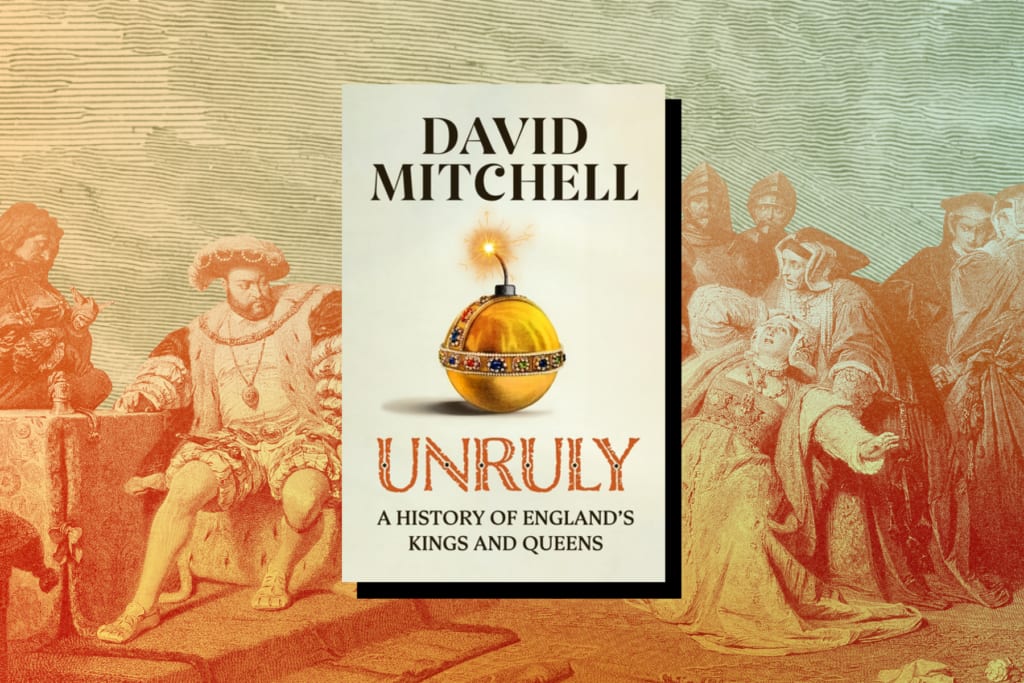
I was sort of avoiding reading this because of the fact I am not a big fan of this man's comedy. However, it kept getting recommended to me over and over again and now here we are. I generally enjoy books about the British monarchy and though there are not a lot of books that go through it so comprehensively, I think I might find this to be better than average but not as great as say, The Plantagenets by Dan Jones. This book adds all the quips and comedic ideas associated with its writer into a nonfiction book regarding the very beginning of Britain's sense of identity. From an introduction starring the weird ideas of Winston Churchill and why the monarchy is so important to Britain's sense of self, this book is a joyful look at the country and its rulers.
The author invites us to explore the realm of King Arthur and how he may not have been real, he was definitely there for some kind of nationalist message. I already knew this but to be told this again and in some more detail than the information I already had was something interesting. It was not only a nationalist message, but was possibly based on an amalgamation of certain old kings, and even those we do not know whether they actually existed. I'm not sure what the take-away message is here but I think it's that the Dark Ages of Britain had such poor recordings of events that nobody really knows what happened and just accepts some kind of roundabout story that is now considered a loose fact.
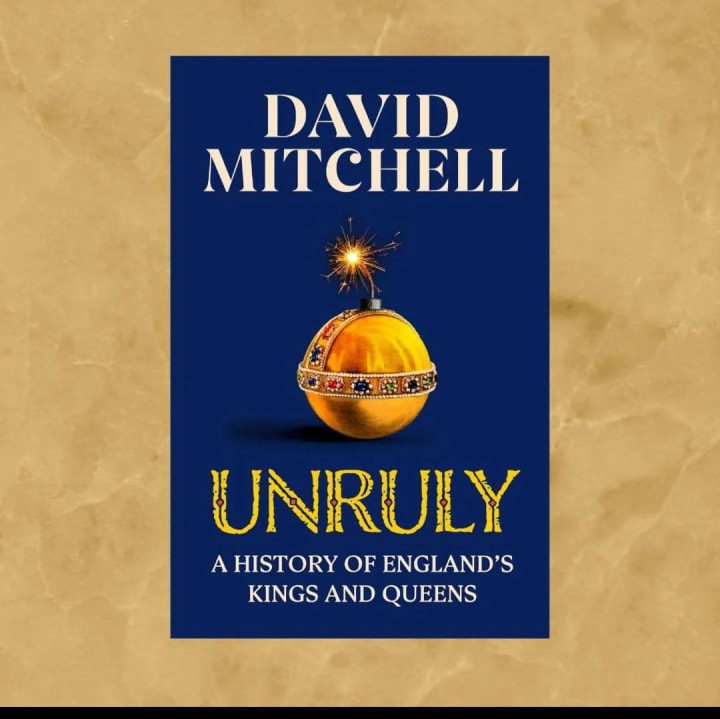
When it comes to these Kings of Wessex and whether they were real people, the author makes the point of telling us that there is wholly a lack of evidence in order to set the reader up without any pretensions or delusions of old-world England. Like religion, these people required something powerful to believe in so that they could feel like part of the group. Great information as it is, it does deflate the sense of patriotism that anyone would feel today towards the post-Roman era of Britain that, though it may not have been anything good or progressive, had some of the angriest war stories ever heard. I mean, have you seen that key image of Ceowulf carrying a sceptre and dressed in armour? - That looks cool whether it's real or not.
One of the names I liked hearing about in this book was 'The Venerable Bede' who chronicled a lot of his times and is probably the only reason we know anything about it. It also proved that these Dark Ages were, as the author puts it, a very positive time for the churches - since Bede was a monk, his account is more of a reflection of his institution within the time rather than simply the time itself. Though it is objective, the author mentions how it is a tad bit optimistic for its era of stagnation rather than progress. However, it is still the most realistic chronicle we have of the time and thus, we have no choice but to recognise the differences between the church's vision and the reality of the time.
This probably also explains why chroniclers did not chronicle any women of the time: they simply didn't deem them important enough to be written down. This is, according to the author, why we know so little actual information about the wives of these kings, even if they did in fact rule in their husband's names and controlled parts of lands. The church and its chroniclers at this time were not only terribly sexist, but probably did not deem the lives of anyone except the king - man or woman - important enough to be part of recorded history.
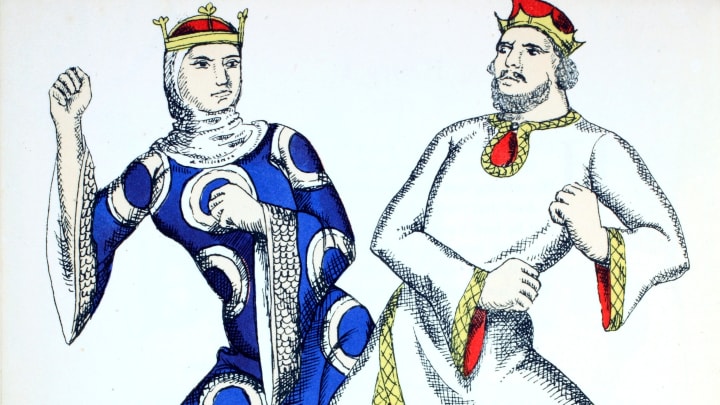
One man I knew a lot about already in this book was Aethelred the Unready and I was more than excited when there was a whole chapter on him to indulge him. Not only is his name a piece of irony to what it means, but his reign was plagued by his bad decisions and worse luck. This, plus the author's propensity to turn everything into a joke, was actually quite entertaining to read about and much more fun than learning about his dismal reign from a history textbook. A coward and quite literally 'unready', Aethelred continues to be one of the most laughable kings of his era because of his lack of basically every skill for Medieval Rule.
I found it quite funny that the author proved there was a correlation between ex-kings and rebel kings hiding out in Paris, France before coming back to England or, in the terms of an ex-king - simply living there. This is true for Henry VII, Charles II and even for the abdicator, Edward VIII. Honestly, I would not know why this is except for the fact that France used to be fought over again and again by nobility in England until the reign of King John and that was not a great reign at all - far from it. The author tells us this, but gives us little details as to why. The correlation may be there, but the causation is left funnily up to history.
The parts I am more familiar with start from here - the age of William the Conqueror and onwards. My history teacher once told me that this was really where the English Monarchy really ended rather than began. I don't think it's discussed in the book, but when William the Conqueror came to England for his coronation he was greeted with cheers and since there was no shared language, William's army took this for an uprising and basically burnt down London. So much for globalisation... But though he was not the only conqueror, he was the most popular one since he brought with him the Norman language and nobility. I may be a bit shaky on the reasons for the author's sheer dislike for Edward the Confessor, but I am sure his dislike for William the Conqueror is justified.
At one point, the author does discuss one thing we have in common: we both attempted to read the Doomsday Book. I gave up halfway through, choosing life instead of a dismal existence any longer though I do not know how much of it he read. When it comes to William Rufus' reign though, this Doomsday Book reading seems unimportant as he goes through the reasons that William Rufus was probably not homosexual and this was made up by chroniclers looking to smear him because of his lack of donation to the church. Written in a wry style, I do not know whether I am fit to believe this as even though the chronicle accusing him of homosexuality does not have proof - neither does the author. This is all just Chinese Whispers now - it's a bit far off to tell.
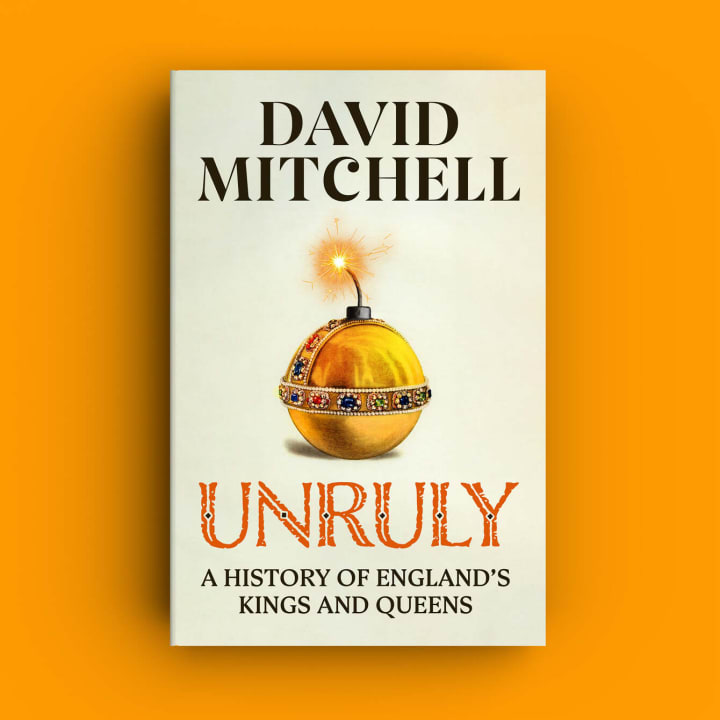
From Robert missing out on being king for a second time because he was on crusade, we are moved on to the White Ship tragedy. Now, I read a really good book about this some time ago and it was by Lady Diana's brother and quite justly called The White Ship. A book about the equivalent of a drunken car crash by a bunch of teenagers killing everyone - including the supposed future King of England. It may be an exaggeration to say Henry I never smiled again but, I would be pretty upset too if that was me. As we know, a whole host of problems broke out next involving the autocratic Matilda and the usurper, Stephen. Something that the author does not gloss over at all - it was wild.
I like the fact that the author also goes through the names of kings and that kings are named as they are because of reputation - which is why there are no kings called 'Stephen' or 'John', also why the 'Henrys' ended with the eighth one, possibly why the 'Elizabeths' keep doing so well and yet the 'Annes' have not been seen since the 1700s. Kings and Queens are named by reputation and what a better reputation to have than be named for Gloriana, Queen Elizabeth of England? I mean, that really sets up the whole thing for greatness, doesn't it?
When it comes to discussing the unsteady nature of Thomas Beckett when he was the Archbishop of Cantebury, the author makes the point of stating that he probably did not say the famed line 'Who will rid me of this turbulent priest?' - Something that I honestly thought he did say and now I know he didn't say it, it's a little bit deflating if I'm honest. That's one thing I was hoping to have happened because it sounds so Shakespearean. However, the fact that it didn't happen like this is more probable than it happening and so, it's something I must begrudgingly accept.
As I kept reading, I gained access to more knowledge than what I had already read in the Penguin Monarchy book series (though I read all of them last year and the year before). However, there was one thing that I could not seem to get over - the fact that the book goes off on random tangents. For example: there is one about cricket when he's talking about Edward I who was an incredible sportsman (who existed a few centuries before cricket) as well.
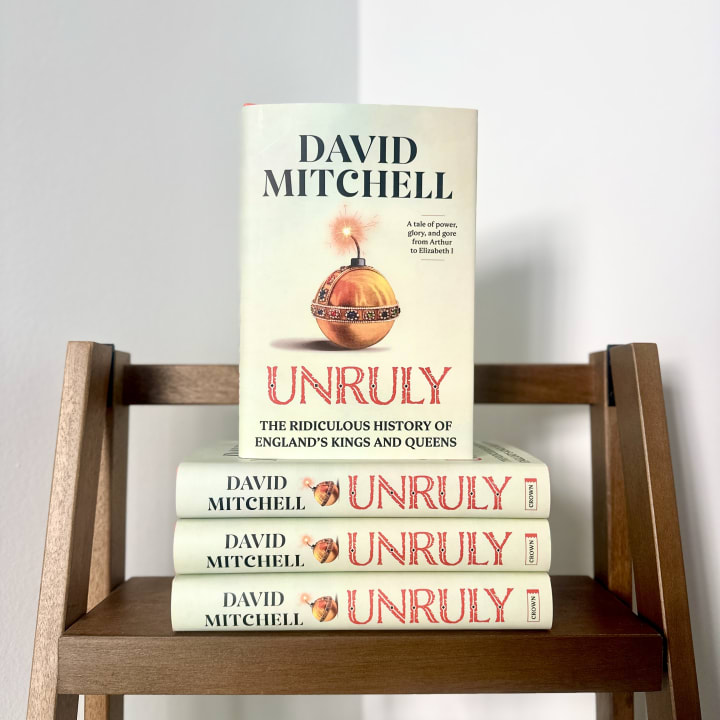
Edward I is probably best known for his take over of Scotland, but also better known for his anti-semitic laws which would be carbon copied by Adolf Hitler before he would commit some of the atrocities we know of in the form of the Holocaust. The chapter on Edward I does not show him as any kind of 'Hammer of the Scots' Arthurian Hero that is sometimes the opinion brushed on to him - but instead a man with several huge flaws who made several terrible decisions. One thing that I learned from this book is that it was Edward I who made it a 'thing' for the male heir to the throne to also be called the Prince of Wales. It was Edward I who ended the Welsh line of kings, taking it over and keeping it.
I enjoyed the chapter on King Edward II because I have seen Edward II's grave and I've read so much about him that I'm pretty expert on this particular king. Edward II's main downfall was the fact he had so many different people as his favourite person. Piers Gaveston is one of these people who showed up wearing the royal jewels and some of the noblemen were enraged to the point of wanting to actually kill the man there and then. Edward II may have been flawed but, I have to agree with the author when I say that it had nothing to do with his possible (at least) bisexuality or (probable) homosexuality. Edward II was flawed not just because of his favourites, but also because of the fact he was not particularly a Medieval Warrior King like his father. Instead, he was a man handing out earldoms and most likely, travelled with a pet lion and a group of troubadours. This was a man who was not a great guy, but was not nefarious at the least - just a bit docile if we are going to be perfectly honest.
As we go on through the years, we get a look in to the guilty Henry IV, the warrior, Henry V and further on to the monkish Henry VI. But I think one of the most interesting chapters for anyone has to be the one on Henry VIII which the author writes with his usual snark and sarcasm which is probably even better given the fact that history seems to feel the same way about him generally. The comments really do hit their height about here, even though we also got more than enough of them during Richard II's chapter where he made a series of bad decisions including wanting to make Edward II a saint - which is kind of the same realm as when Rishi Sunak gifted the Polish Prime Minister a painting of Margaret Thatcher. A bad decision that everyone just tried to ignore for long enough so that it went away and hopefully, the general population forgot about it.
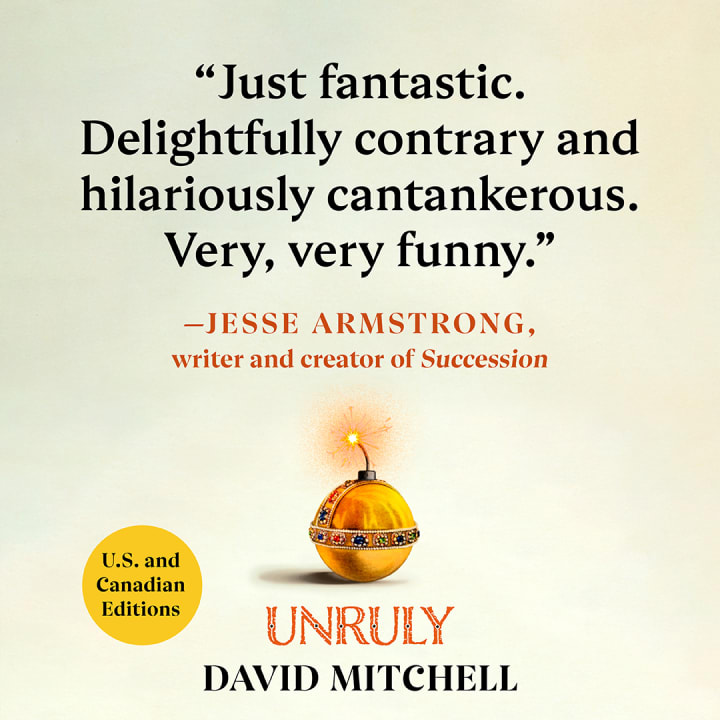
This book only goes up to Queen Elizabeth I but I think the author decides to stop here for the fact that the reader is practically exhausted and overwhelmed with information. I devoured this in a couple of days and I am tired as hell now and I knew most of this stuff beforehand. I can't imagine being someone who didn't know anything about the monarchy reading this book. I hope he comes out with another one that continues from when we once had "Elizabeth the King" and then got "James the Queen" all the way down to the peaceful but oddly reserved nature of King Charles III. I would love to hear what he thought of the reformation era and the madness of King George III.
About the Creator
Annie Kapur
200K+ Reads on Vocal.
Secondary English Teacher & Lecturer
🎓Literature & Writing (B.A)
🎓Film & Writing (M.A)
🎓Secondary English Education (PgDipEd) (QTS)
📍Birmingham, UK






Comments
There are no comments for this story
Be the first to respond and start the conversation.